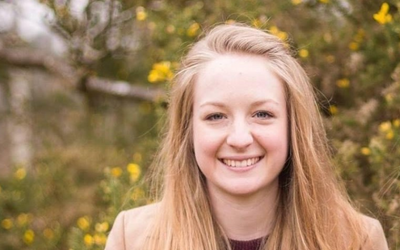You are here
- Home
- External Events and Publications
- Biennial APS Conference
- APS Conference 2023
- Conference programme
- Updating ICEBERG: The process of updating the OU’s design principles for retention with a focus on embedding EDIA
Updating ICEBERG: The process of updating the OU’s design principles for retention with a focus on embedding EDIA
Catriona Matthews, The Open University
Email: catriona.matthews@open.ac.uk
Poster
Abstract
The ICEBERG principles support module design that could positively influence student retention in an online, distance learning context (Ameijde, Weller and Cross, 2015). The frameworks seven principles have become a core element of the Open University’s Learning Design offer.
Online higher education institutions experience a higher rate of withdrawal than face to face institutions. (M. Xavier et al, 2022). The OU’s most recent impact report shows that while progress is being made against targets to reduce module completion gaps, for students in APS categories, in particular for Black students, comparatively high rates of withdrawal and non-completion persist. (Open University, 2020) This is in line with sector wide evidence that students within APS categories have a higher risk of non-completion and withdrawal (Advance HE, 2021).
The ICEBERG principles are currently being reviewed with a view to embed EDIA more explicitly into the principles through:
- Student voice input
- Review of the literature
- Exploring how existing OU tools e.g. Inclusive Curriculum Tool can complement each other
This poster will share this process.
References
Advance HE (2021) ‘Equality in higher education: student data 2021’, 28 October 2021, at Equality in higher education: Statistical Report 2021 - Data Tables | Advance HE (advance-he.ac.uk) (accessed 8 January 2023)
Open University (2020) ‘2019-20 access and participation plan monitoring. Provider impact report’, at https://www5.open.ac.uk/widening-participation/sites/www.open.ac.uk.widening-participation/files/files/impact_report_10007773.pdf (accessed 27 January 2023)
Van Ameijde, J., Cross, S. and Weller, M (2015) ‘Designing for student retention. The ICEBERG Model and Key Design Tips’, at https://www.open.ac.uk/blogs/learning-design/wp-content/uploads/2020/09/ICEBERG-booklet-compressed.pdf (accessed 2 December 2022)
Xavier, M., Meneses, J., Jantsch Fiuza, P. (2022) ‘Drop out, stop out, and time challenges in open online higher education: a qualitative study of the first year student experience’, Open Learning: The Journal of Open, Distance and E-Learning.
Catriona Matthews
Learning Designer (STEM), The Open University
Catriona is a Learning Designer based in the Open University’s STEM team. She joined the OU in April 2022 and has worked in Higher Education supporting Learning Design since 2018. She is particularly interested in supporting teams with inclusive module design, the integration and articulation of skills support within module design, and exploring the use of digital tools with both module teams and students.
